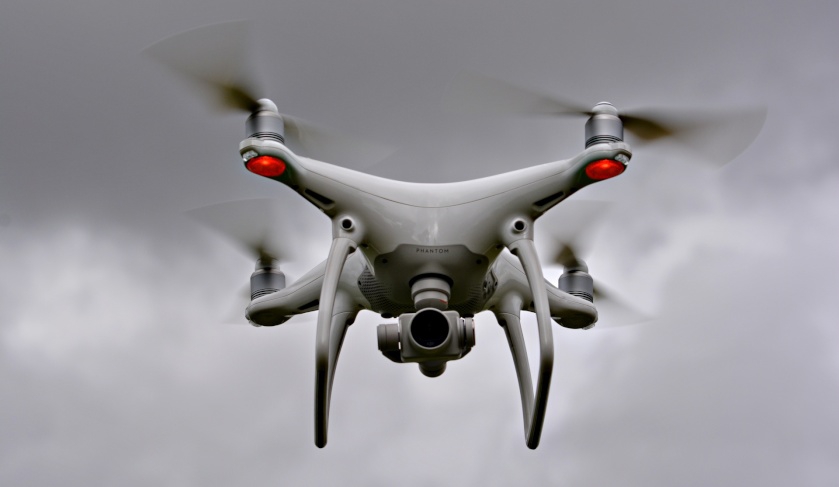With drones changing the way modern soldiers and commanders operate, drone literacy is key to ensuring that Australian troops can maintain their advantage. For the Australian Army, civilian, commercial off-the-shelf (COTS) unmanned aerial systems (UAS) are providing the proving ground to ensure Australian soldiers remain at the leading edge of this capability.
The capability of Army's UAS, including the DJI Phantom 4 and the Black Hornet, were on display at Randwick Barracks as the Australian Army continues to roll out the technology across the country.
Sydney-based personnel of the 17th Combat Service Support Brigade (17 CSS BDE) received a DJI Phantom 4 UAS on Monday as part of the Army’s plan to issue 350 UAS, with each unit receiving up to three systems.
"This technology will better enable Army to gather airborne imagery of training to assist with improving training methods, conduct site surveys for the placement of camps and other temporary facilities, assess damage to buildings, as well as assist with environmental protection in the field. These drones provide a variety of tools in the tool kit for soldiers and in the field commanders, we want to enable commanders and soldiers to quickly and effectively identify which tool they use," Colonel Gabrielle Follett said.
For David Mann, general manager of UAVAIR, the training company responsible for providing the roll-out training for Army, the project with Army was exciting.
"It is a very exciting time for UAVAir, this is our first contract with Defence, which when completed by two teams by the end of November this year will see Army supplied with 840 UAS operators who can the train soldiers and commanders in the use and benefits of UAS systems," Mann said.
The DJI Phantom 4 is a COTS system that will be used in training to increase soldiers’ UAS literacy and is one component of the wider UAS program for the Australian Army.
COL Follet said, "If you buy off the shelf, it is cheaper, it allows you to partner with industry, which has impacts for future procurement, meaning you can get the next platform much easier.
"Issuing the DJI Phantom 4 to soldiers at all levels will change the application of tactical robotic technology and provide our troops with better situational awareness that will keep us informed from the air to make critical decisions on the ground in any tactical situation. I think these platforms provide endless capability opportunities, particularly in the combat support and logistics roles."
Along with the DJI Phantom 4, 17 CSS BDE showcased other Army modernisation initiatives at the event, including the Black Hornet 3 nano UAS, the Enhanced F88 Rifle, PMV Bushmaster and G-Wagon vehicles.
Lieutenant Colonel Keirin Joyce, program manager for unmanned aerial systems in the Australian Army, said, "The roll-out of these systems are very exciting, particularly being so aggressive about it; having hundreds of soldiers capable in a matter of months is very exciting."
UAVAIR are the premier trainer for Remote Piloted Aircraft Systems. Backed by Australia’s largest aviation training company Basair Australia, UAVAIR offer the highest level of qualification available in the commercial sector with links to various industries utilising drone technology.
The Australian Army is currently undertaking an extensive modernisation program, which will see new armoured vehicles, air defence systems, enhanced rifles and other systems incorporated into the Army's arsenal.
As part of this modernisation program, entitled Army Research and Development Request (ARDR) 16/0054, Army is investing heavily in Remote Autonomous Systems (RAS) both ground and air based systems, which has seen the initial procurement of Black Hornet, Phantom and other RAS, which will continue to evolve as part of the broad spectrum of modern operations.
Stephen Kuper
Steve has an extensive career across government, defence industry and advocacy, having previously worked for cabinet ministers at both Federal and State levels.









